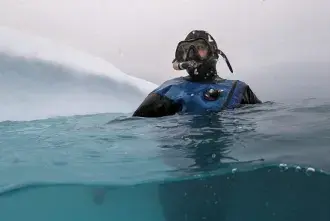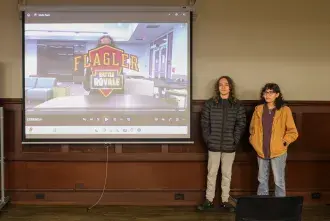
The research investigated how the species is being impacted by both human and natural causes, especially following major hurricanes that have impacted Northeast Florida over the past couple of years. The international science journal "Global Ecology and Conservation" published the group's research in January, 2021.
The Gopher Tortoise is threatened throughout its range in the southeastern United States, and its upland habitats have been greatly reduced by habitat destruction and other causes. Blonder worked with Kyra Liedkte and Sloane Stephens, both students at the time and who had been chosen for their expertise and skills needed for the research.
The team was interested in studying the animal's coastal sand dune environments, where little is known about the species' behavior and ecosystem role. Coastal natural areas in Florida have been reduced by human activity, and new threats like accelerated sea level rise and an increasing frequency of more powerful storms also pose a greater threat to the tortoise.
But in addition to the critical research, the project also showcased an all-female team of researchers, which can be rare in the scientific community.
“We worked really, really hard and we got a paper in a really good, high-quality international scientific journal as three women from a small college,” Blonder said. “That's really not on the map for science. I'm really proud of that.”
In the study, Blonder and the students found through pre- and post-storm surveys that while habitat was lost, their findings pointed to the “potential for resilience of these coastal dune Gopher Tortoise populations.”
Yet, they wrote in the study, “as resilient as this population may be, it is running out of room due to sea level rise and habitat loss and fragmentation. Such implications for this and other species should be considered in conservation planning for coastal species of concern.”
Liedtke said as climate change continues to occur, understanding how different species and the natural world continue to react is critical for finding solutions to how humans can better protect the Earth in the future.
“Every aspect of an ecosystem holds an important part for a variety of habitats and ecosystems. Cities will continue to grow, forests will continue to be destroyed," she said. "But, with that in mind, how can we better implement areas and urbanized spaces to coexist with these animals as a whole?" The article can be accessed on ScienceDirect.com.



